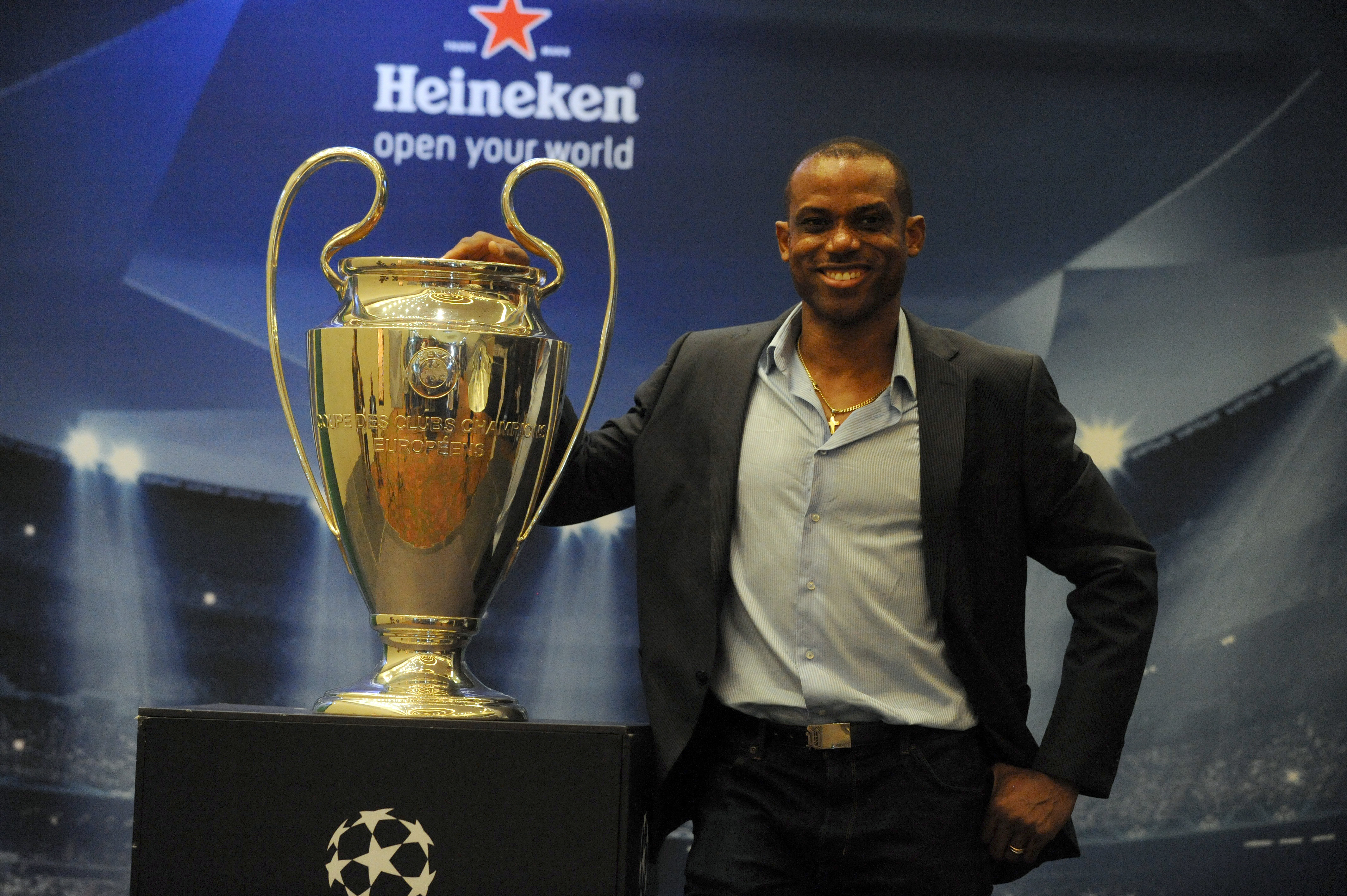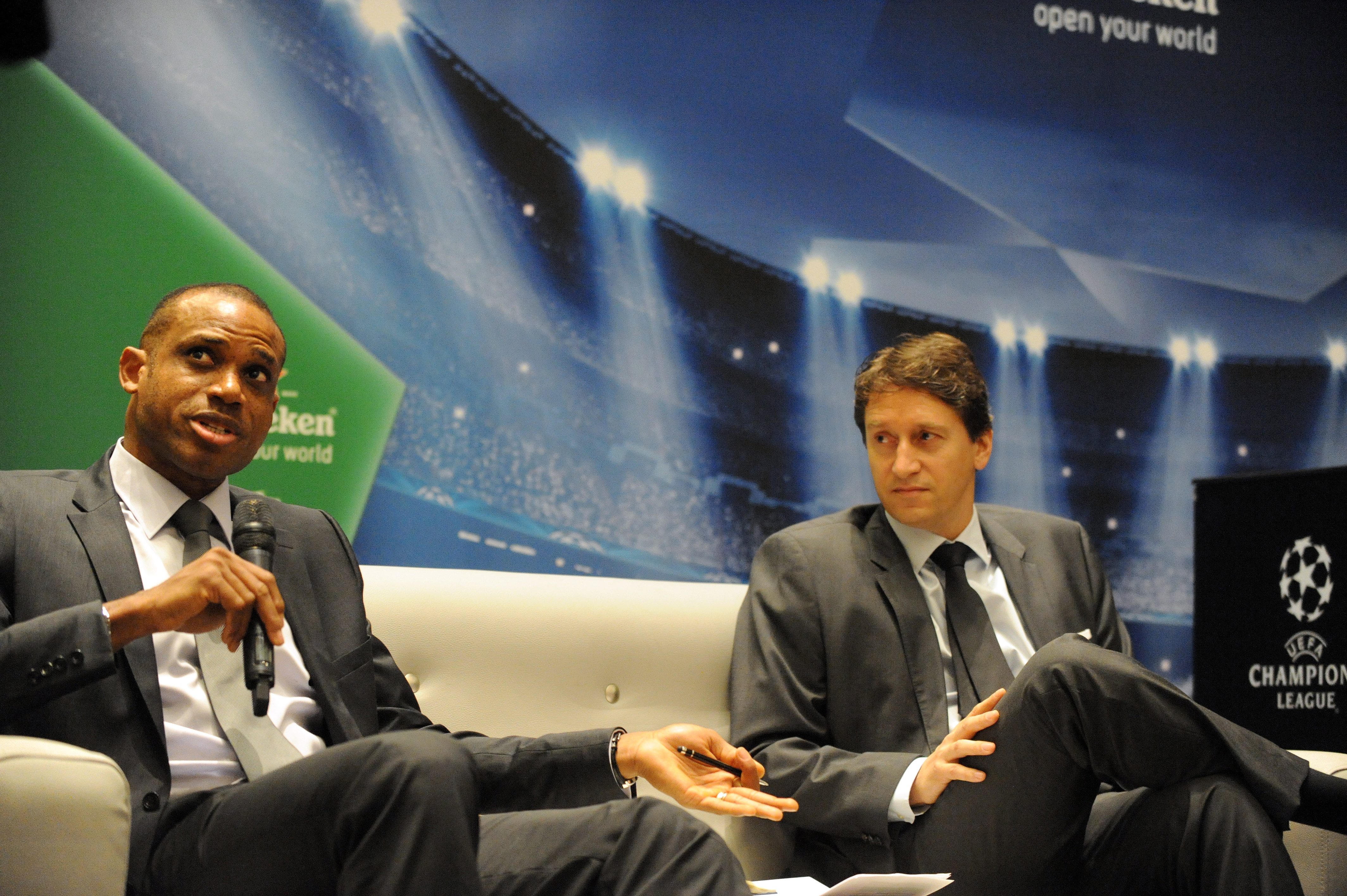In July Nigerian FA president Amaju Pinnick hailed Sunday Oliseh as the Guardiola of Africa but enter 2016 and the novice coach has delivered little.
The 41-year-old, who has played for Ajax Amsterdam, Borussia Dortmund and Juventus in the past, was brought in to rejuvenate the Super Eagles, Nigeria’s national team, after Stephen Keshi’s disappointing reign. But Oliseh’s erratic behaviour (notably his infamous YouTube rant), lack of experience and disappointing results have cast a shadow over Nigeria’s footballing future.
What were your emotions when you were appointed as head coach of Nigeria?
I was delighted when I was appointed because very few players get the opportunity in their careers to captain Nigeria and to coach Nigeria. It’s a dream for a lot of captains. For me, it is good to have this opportunity.
If I was European and not African, I would have already coached a top club in Europe.
It was also emotional to come out and take the dugout against Tanzania, because it was the beginning of a new cycle for the national team and the coach. It was good that we came away with a positive result.
You have limited coaching experience, so did your appointment come as a surprise?
No, Nigerians know that if I was European and not African, I would have already coached a top club in Europe. I think the Nigerian FA chose me because they feel I am the most qualified for the job at the moment.

In your opening press conference you said you only wanted to select players from solid leagues?
I mean leagues that are very competitive and where the level of play is high: the German league, the English league, the Spanish League and any player who plays in the Champions League or in the Europa League. Those are high-level competitions. Our own local Nigerian league is also getting better and better.
Do these players have an easier route to the national team?
No, those are fast competitions but they still have to come to the national team and compete for their positions.
Possession-based football is my philosophy.
If you are doing well at club level, you will get invited and we get everyone together. Then, the best players will play for Nigeria.
Does that ultimately translate into the possession-based football that you are trying to instill into the Super Eagles?
No, possession-based football is my philosophy. My understanding is that to win the game you have to keep the ball but for a player to be able to execute that possession-based football, you must come from a league that is very competitive. You are quick in your thinking and in your playing.
Which identity do you envisage for Nigeria?
I want the Nigerian identity. That’s our style of football; football the way we know it – a game that is technical, pacy and with the capability of being aggressive. Football needs to be aggressive.
Is there a particular coach that inspires you?
No, the inspiration comes from how I played and from my own playing career. Don’t forget that I played for Ajax, Juventus and Dortmund. Those are clubs that all play and keep the ball. So it doesn’t come from one coach but from the way I see football myself.

What did the UEFA Pro Licence course teach you?
I learnt that being a coach is totally different from being a player. I can’t tell you [in what sense] but it’s two different jobs. It has been an advantage to have been the captain of the Super Eagles, because you get a lot of particular experience that most players won’t get.
Looking at the A-team, Ambrose and Balogun played well in defence against Cameroon. Is that something you want to build on?
Well, it’s difficult to say that now. I was pleased with Ambrose and Balogun but they are all part of the team that we are building. They are definitely in our plans for the new Super Eagles in the future.
In midfield you bring the likes of Onazi and Igbun, is that a way of preventing the midfield collapses under Keshi?
No, I don’t want to be compared to anybody, because that’s unfair. I am not choosing my team based on the past or on what may have happened.
I try to work with the players to get the best out of them.
I am choosing my team based on what I think is best for Nigeria. That’s what I do. I use the players I have in the best way I can.
Mikel excelled against DRC and Cameroon but you didn’t field against Swaziland in Port Harcourt. Is he part of your long-term plans?
He is a very good player. You are not part of the Chelsea setup by mistake; you get there because you are good and have a lot of qualities. He sees and reads the game very well. I try to work with the players to get the best out of them. I select the players and they come to the national team. They have to fight for their position.
You seem to have set ideas about your team selection but did the Enyeama incident create instability in your squad?
No, that chapter is closed and the team has moved on. I expect [new captain] Musa to bring his experience from his club, his calm nature and his hunger to win. He has also been with the Super Eagles for a long time.

What are your reflections on the qualifiers against Swaziland?
It was very satisfying to win and to qualify [for the next round]. I was never in doubt [that we would qualify]. It’s difficult when the opponent sits deeps and that’s exactly what they did.They had one chance in the second leg. We had plenty of opportunities but for a long time we didn’t take our chances.
In which areas do you want your team to improve?
In every area – in the defense, in the midfield and in the attack. We have just started as a team; it’s normal.
It’s a crazy job and you don’t know what will happen.
In time I would like to have qualified for the African Cup of Nations and be further on our way to the World Cup in Russia. As I’ve said, we have just started.
In general Nigeria doesn’t produce the caliber of players of a Nwankwo Kanu or an Oliseh, how can this situation be turned around?
The most important step to return to greatness is to make the national team play good. That’s why I am trying to get Nigeria a style of play and to get out the best through this style. The Nigerian FA is trying to bring an awareness that there needs to be a certain style of play at youth level.
The senior team must continue on its way so that it’s not only talk but that you can see how the team is playing, how the team is trying to combine. That way it’s easier for the youth players to follow.

You won’t turn Nigeria into Germany overnight, what would you say are your long-term goals?
In this job, you can’t have long-term goals. It’s a crazy job and you don’t know what will happen. I am not a messiah, because I know that Nigeria doesn’t have patience. From the first game you have to win 5-0 and play the Barcelona way or play like Real Madrid or Germany. You have to be clear in that it takes time to build team. You have to accept that and be patient, or you will never have a competitive team.
